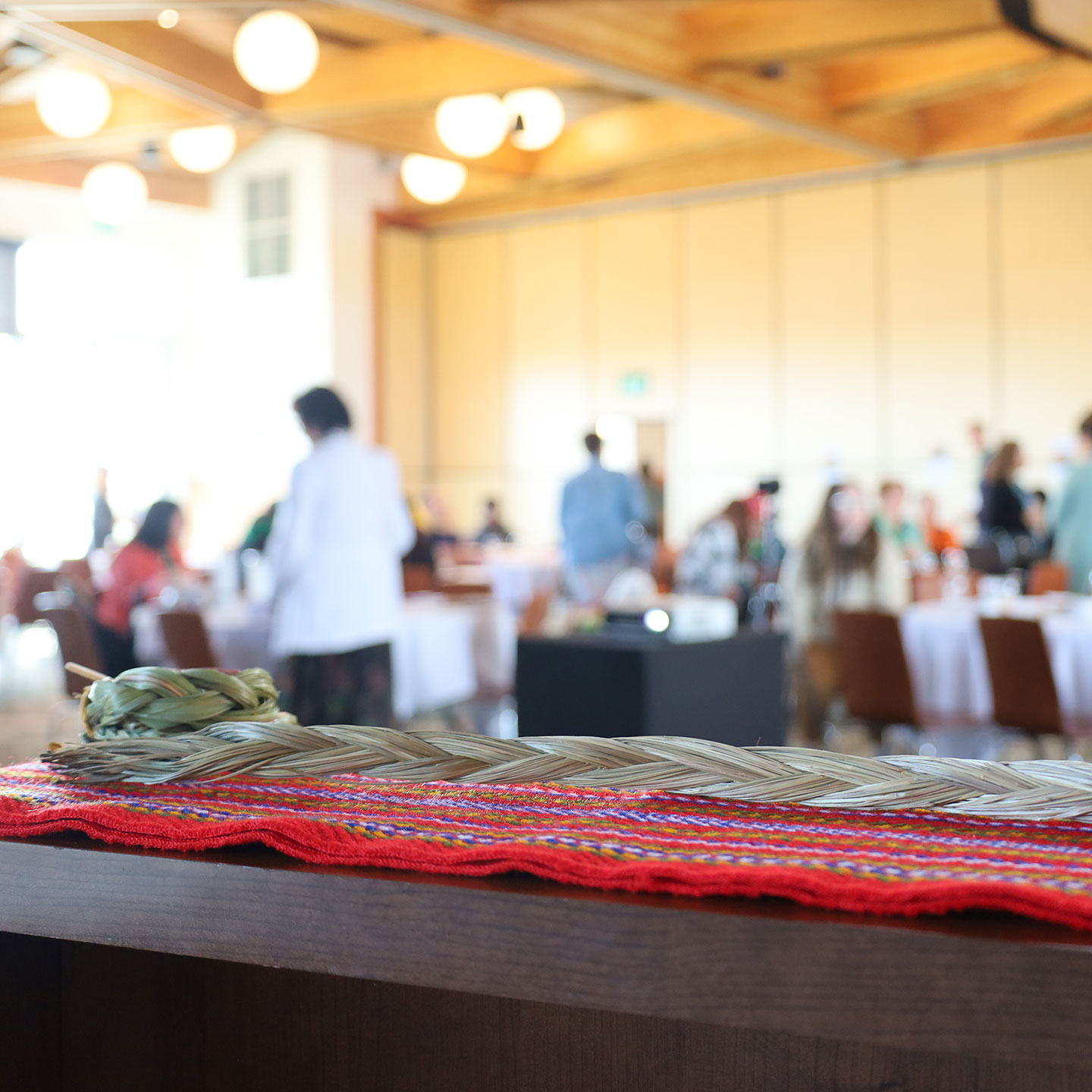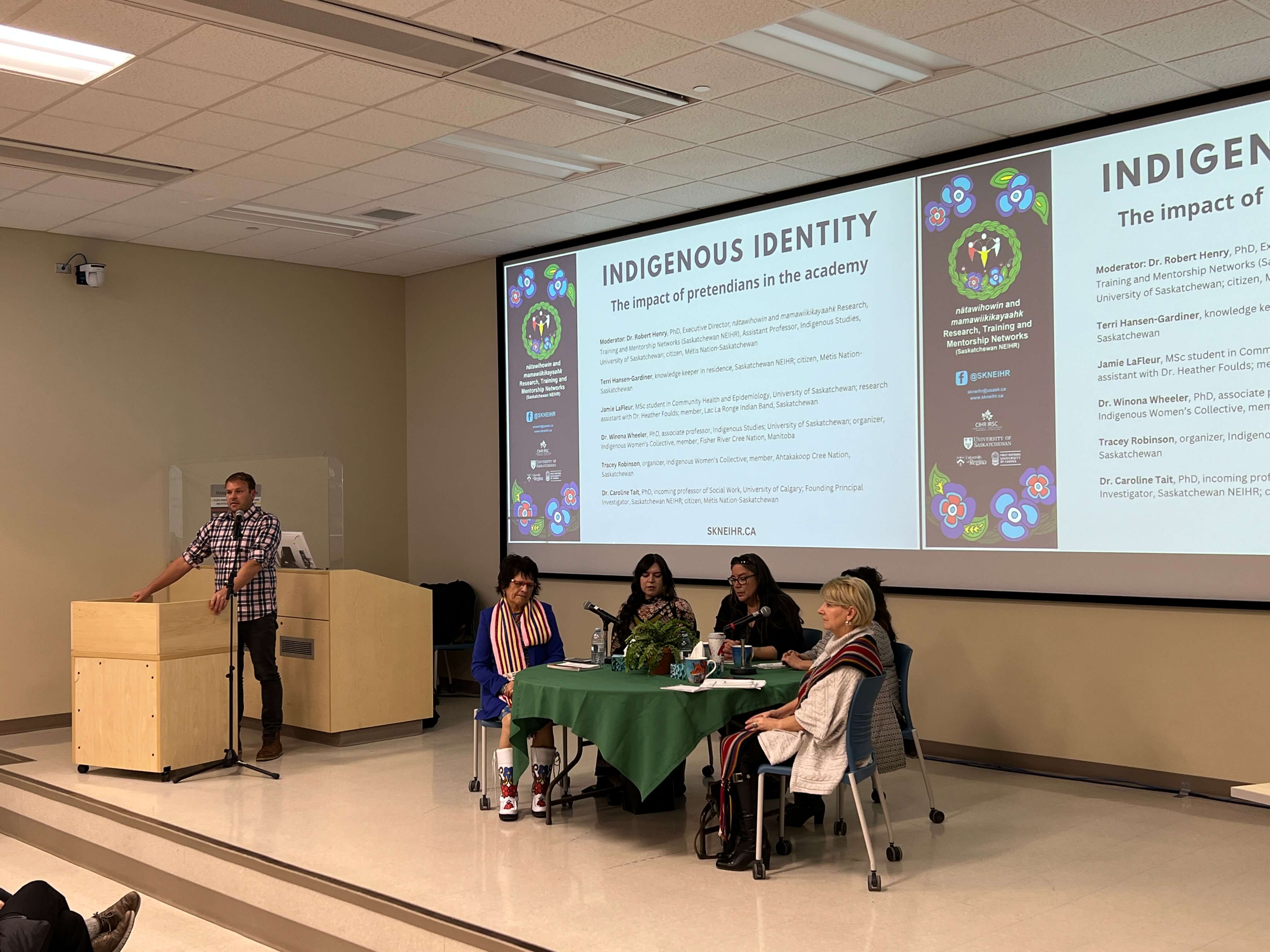Who We Are

Welcome to SK-NEIHR, the nātawihowin (pronunciation) and mamawiikikayaahk (pronunciation) Research, Training and Mentorship Networks. We facilitate First Nations and Métis health research, training, and knowledge mobilization throughout Saskatchewan that is grounded in community and led by Métis and First Nations people.
Our networks are made up of researchers, community organizations, community members, and graduate students throughout our province who work in First Nations and Métis health and wellness. SK-NEIHR is led by Métis, First Nations and allied researchers, in partnership with Métis Nation-Saskatchewan, FSIN, and other community partners.
Our work is guided by the foundational beliefs that Saskatchewan First Nations and Métis people are best situated to lead research, training and knowledge mobilization involving our communities. We also believe that the SK-NEIHR belongs to Métis and First Nations Peoples in Saskatchewan, and that it can grow and evolve based on community-identified needs. We rely on the guidance of our community partners, Elders, knowledge keepers, and other experts for this work.
We are funded by the Canadian Institutes of Health Research under their National Network Environments for Indigenous Health Research (NEIHR) initiative.
Click below to explore and learn more.
What We Do

Based upon direction from Saskatchewan's Métis and First Nations health leaders, the SK-NEIHR has established two intersecting and collaborative health and wellness networks to support the unique health research needs of First Nations and Métis communities in our province.
The Métis network, mamawiikikayaahk, “healing together” in Michif (pronunciation), is the first Métis-specific health research network in Saskatchewan. Under the leadership of the SK-NEIHR and Métis-Nation Saskatchewan’s Ministry of Health, the mamawiikikayaahk network supports researchers, students, and Métis health leaders and communities.
The First Nations network, nātawihowin, “art of self-healing” in Cree (pronunciation), is the only First Nations-specific health research network in Saskatchewan. Under the leadership of the SK-NEIHR and FSIN’s Health and Social Development Commission, the nātawihowin network supports researchers, students, and First Nations health leaders and communities.
Our activities include:
Research matchmaking: identifying funding opportunities and matching researchers and communities
Funding: community partnership funds researchers to engage with communities to develop and submit grant proposals to large funding agencies, and knowledge translation funds to share research findings broadly
Writing and research administrative support: assistance with grant and report writing and knowledge translation, and financial management of research funds
Training and professional development: workshops, webinars, and training in community-based research methods
Mentorship for graduate students and new investigatorsConnect With SK-NEIHR

Are you a member of a First Nations or Métis community or organization in Saskatchewan interested in conducting research? Do you want to find researchers who are interested in working collaboratively with your community?
If so, please click the link below to contact us by email. You can also become a member of our network, so you can access resources and be listed in our online member database.
To keep up-to-date on our activities, you can also follow us on Facebook and Instagram and sign up for our newsletter.

